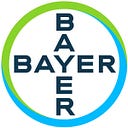By: Robert LaCaze, Member of the Executive Committee of Bayer AG’s Pharmaceuticals Division and Head of the Oncology Strategic Business Unit
In the past two decades, we have experienced exciting milestones in cancer treatment innovation that have helped to transform the patient journey. We now have more therapeutic options that can extend and improve patients’ quality of life — two of the most important goals of treatment. Learnings from these periods of progress have revealed the unique complexities of cancer and challenged us to think differently about this disease, inspiring a paradigm shift in oncology. The result is precision oncology, a new era in cancer care.
Defining the “Me” in Treatment
Imagine if we had the ability to block oncogenic drivers in the human body. That is the ground-breaking concept behind precision oncology: tailoring treatments to address the underlying genomic cause of a patient’s individual cancer.
But how can we learn the specific details and drivers of every cancer? Doctors and researchers are using genomic tests to identify genomic alterations that drive the growth of cancerous tumors. The results can inform which treatment modalities may work in specific patients. This new strategy represents a significant change in our thinking: moving away from the “one size fits all” approach of cancer care (e.g., breast, lung, liver) and instead focusing on cancer drivers found beneath the cell surface.
Genomic profiling is crucial to the advancement of precision oncology. With this valuable information, physicians may be able to design a more precise treatment roadmap for their patients. Cancer centers around the world, including those in the National Comprehensive Care Network (NCCN) in the United States, have already begun treating patients with drugs matched to DNA mutations in their tumors.1,2
This shift toward more precision oncology and genomic testing does not mean that all patients can be matched to a targeted medicine or that the mainstays of cancer therapy will become irrelevant. However, a broader adoption of genomic testing can help physicians identify more patients with specific abnormalities who can be matched to approved treatments or appropriate clinical trials. As every patient is different, this is a big step forward in cancer care.
Our Role in the Paradigm Shift
At Bayer, we are actively contributing to this promising age of innovation. We are dedicated to taking an individualized approach to cancer care and finding solutions in areas where limited or no treatment options exist. One of our focus areas is tropomyosin receptor kinase (TRK) fusion cancer — a type of cancer caused by an abnormal fusion of two genes in a cell. Together with Loxo Oncology, we are exploring ways to treat this cancer driven by a genomic alteration, which occurs in a broad range of tumors in both adults and children. Currently, no standard of care exists to treat patients with TRK fusion cancer. Our investigational TRK fusion cancer therapy is currently under review by the FDA, EMA, and other health authorities.
Translating Knowledge into Reality for Patients
We are continuing to learn about the benefits of genomic profiling and what tailored treatments could mean for the future of cancer care. But to transform this knowledge into real-world opportunities for patients, we must unite as a cancer community and develop a blueprint for success. This includes:
· Making high-quality and broad genomic profiling part of routine clinical practice to better understand the underlying drivers of cancer
· Globally improving reimbursement processes for diagnostics to increase uptake of precision medicines
· Adjusting value frameworks to take into account the value of precision oncology
Industry-wide collaboration — including pharma, diagnostic companies, payers, and regulatory authorities — is needed to make progress toward these goals so that cancer patients can have quick, efficient access to precision treatments. At Bayer, we believe that precision oncology will bring patients treatments that are appropriate for their cancers and value to health-care systems around the world. That’s why our strategy in oncology is laser-focused on developing and providing access to treatments that address individual patient needs. Most importantly, we do this work with one overarching goal in mind: to offer meaningful advancements and innovative treatments to patients and physicians battling the many faces of cancer.
References
1. European Society for Medical Oncology. Targeted drugs for advanced cancer move from specialist units to community setting. ESMO 2018 press release. October 9, 2018. Available at: https://www.esmo.org/Press-Office/Press-Releases/Mutations-sequencing-cancer-Alvarez
2. Abstract 1891O_PR ’Mutational Landscape of Metastatic Cancers Discovered from Prospective Clinical Sequencing at Community Practice Cancer Program’ will be presented by Ricardo Alvarez during Proffered Paper Session on Saturday, 20 October 2018, 11:00 to 12:30 (CEST) in Room 21 — Hall B3. Annals of Oncology, Volume 29 Supplement 8 October 2018.
